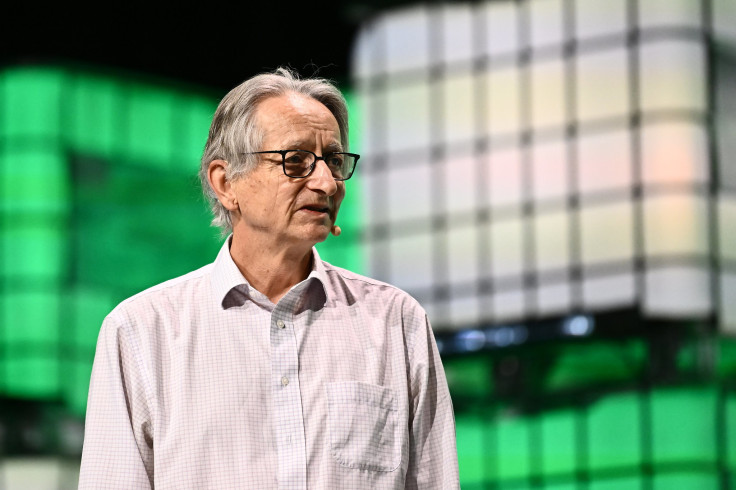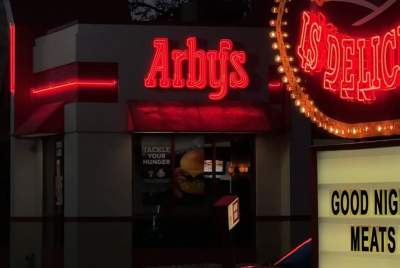'Godfather of AI' Says AI Can't Replicate Certain Jobs–Is Yours Part of the List?
Though he is wary of the effects AI is having on society, Hinton believes it has the potential to do more good than harm, especially in the areas of science and medicine.

Geoffrey Hinton, dubbed 'the Godfather of AI,' has issued a grim warning about artificial intelligence's growing impact on the job market. He has previously voiced fears over AI's unstoppable and potentially dangerous ability to learn and recreate. Hinton is renowned for his pivotal neural network research, which began in the 1970s and earned him the nickname of Godfather. After leaving Google, he has begun discussing AI's impending effects on society. Most recently, he shared his thoughts on which jobs are most at risk of being replaced by automation.
Routine Tasks and Digital Work Are At Risk
Recently, while on the Diary of a CEO podcast, Hinton predicted that AI could soon wipe out vast swathes of white-collar jobs.
'I think for mundane intellectual labour, AI is just going to replace everybody,' he stated grimly, referring to tasks typically performed in office settings, such as legal research or administrative support. Call centre workers are at risk, too, with Hinton saying he would be 'terrified' in their position. The Economic Times has echoed these concerns, claiming that jobs that involve routine tasks and digital work, including those in traditionally secure fields like accounting and law, are at risk of being automated.
STEM graduates are feeling the heat as well, with a report from SignalFire indicating that large tech companies like Meta and Google reduced their new graduate hires by 25% from 2023 to 2024, with only 7% of new hires in 2024.
Additionally, a Pew Research survey showed that cashiers, journalists, and factory workers are at high risk of job loss due to AI. The survey, which included over 5,400 US adults and more than 1,000 AI experts, found that 73% of both groups believe AI will reduce jobs for cashiers, while nearly 60% predict similar outcomes for journalists. To make matters worse, a majority of the public and experts foresee AI taking over factory jobs, predicting similar outcomes for software engineering roles.
However, some jobs might be safe—for now.
What Jobs Will We Keep In the Age of AI?
Hinton noted that despite its advancements, physical tasks remain a challenge for AI. For now, skilled trades are likely to be more resilient to automation. 'I'd say it's going to be a long time before it [AI] is as good at physical manipulation,' Hinton said. 'So, a good bet would be to be a plumber.'
By this logic, the roles of construction workers, electricians and other blue-collar workers are not under threat of displacement just yet.
Applied AI expert Jeannie Chung is of a similar belief, telling the Wall Street Journal, 'Jobs that require just logical thinking are on the chopping block, to put it bluntly. I think the pendulum is swinging back to the creative side of things.'
Chung admitted to wanting to be a writer as a child, and says that if she has a daughter with similar ambitions, she will encourage her to pursue the arts.
'I'll be like, "Work on your style and work on your voice,"' Chung wrote. 'Your creativity is your value.'
As STEM graduates and experienced professionals become increasingly unemployed, Hinton has admitted that—despite his undeniable contribution to the technology—he is wary of the speedy advancements of AI, which led to his swift career shift in 2023.
Hinton's Concerns Regarding the Technology
Hinton's comments come with a lifetime of experience. He co-authored a 1986 paper that advanced the backpropagation algorithm for training multi-layer networks, titled 'Learning Internal Representations by Error Propagation.' This contribution earned him a Nobel Prize in Physics in 2024.
Despite his success pioneering AI systems, Hinton is uneasy about where the technology might lead. Speaking to The New Yorker in 2023, he explained that 'If you want a system to be effective, you need to give it the ability to create its own subgoals.'
'Now, the problem is, there's a very general subgoal that helps with almost all goals: Get more control,' he added. 'The research question is: How do you prevent them from ever wanting to take control? And nobody knows the answer.'
This hesitancy drove Hinton to leave Google in 2023, telling The New York Times that he wanted to be able to 'freely speak out about the risks of AI.' During an appearance on '60 Minutes,' Hinton emphasised the need for policies surrounding the use of AI and further research into the technology. Most crucially, he called for a global ban on AI-powered military robots.
Despite fears, Hinton does not regret his work, even sending a journalist a link to Edith Piaf's 'Non, Je Ne Regrette Rien,' meaning 'I have no regrets.' Hinton firmly believes that, regardless of the job losses it causes, AI will revolutionise medicine and science for the better, and warns that we better keep up: 'It's not going to stop,' he told The New Yorker. 'We have to be real. We need to think, "How do we make it not as awful for humanity as it might be?"'
Hinton's warnings underscore a pivotal moment in the evolution of AI and its implications for the workforce. As AI technology advances rapidly, both white-collar and certain blue-collar sectors grow restless under the threat of displacement. In a world where personal branding and innovation are increasingly encouraged, practising creativity and uniquely human skills might be crucial in successfully navigating the job market. Though we might not understand everything about AI yet, the question remains: How can we harness its transformative potential for the greater good?
© Copyright IBTimes 2025. All rights reserved.






















